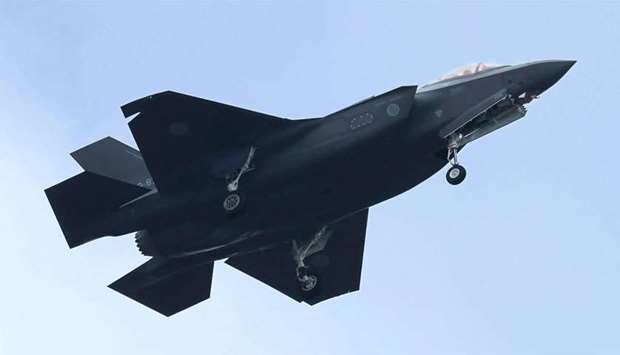Human error was the likely cause of an F-35A fighter jet crash in April, Japan's defence ministry said Monday, and flights of the stealth jet will resume after new training measures.
The jet crashed into the sea in April after the 41-year-old pilot suffered ‘spatial disorientation’, in which a person loses their sense of balance, the ministry concluded.
‘The crash was likely caused by spatial disorientation of the pilot, not technical problems with the aircraft,’ a ministry official told AFP.
The ministry plans to resume flights of the aircraft after pilots are briefed on spatial disorientation, and receive training in a simulation of the experience, the official said.
The state-of-the-art fighter jet went missing on April 9 while flying 135 kilometres (85 miles) east of Misawa, northeastern Japan, on a training mission.
It lost contact about 30 minutes after taking off from Misawa Air Base with three other aircraft.
It was the first reported crash by an F-35A, according to Japan's Air Self-Defence Force.
Last week, the ministry called off its search for the jet about two months after the accident sparked a scramble to recover the pilot and secrets onboard.
Some parts of the pilot's body and debris have been recovered, including the jet's tail, but the flight data recorder has not been found.
The ministry has kept monitoring a wider area to protect ‘classified military information’ as Japan and the US are keen to prevent sensitive debris from the plane being recovered by Russia or China.
Japan is deploying F-35As, each of which costs more than 10 billion yen ($92 million), to replace its ageing F-4 fighters.
They are a key part of Prime Minister Shinzo Abe's efforts to upgrade the nation's military capacity to meet changing power dynamics in East Asia, with China rapidly modernising its military.

